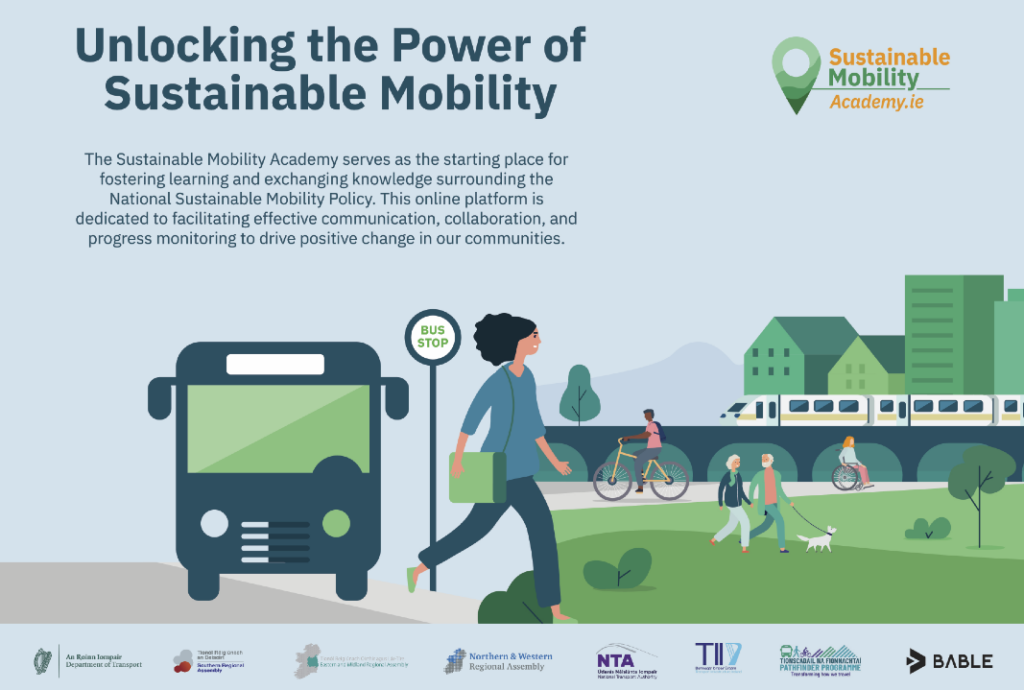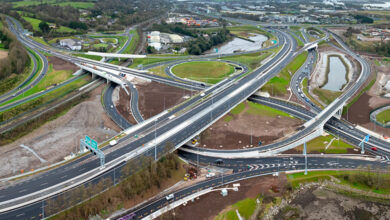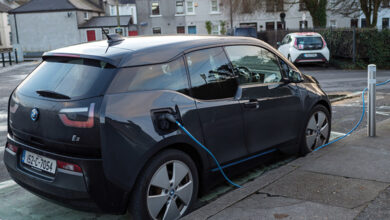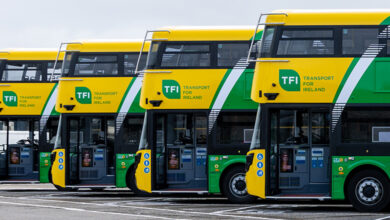Transport Minister Eamon Ryan TD: ‘Changing our approach to transport means changing lives for the better’
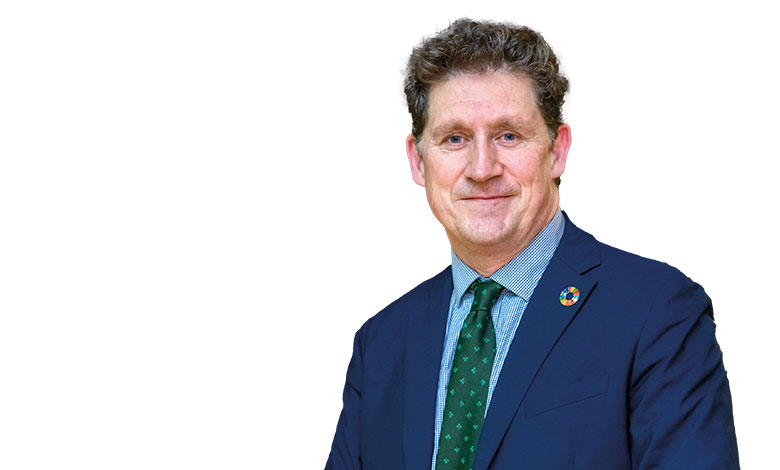
Our daily lives are hugely impacted by our travel experiences, writes Minister for Transport Eamon Ryan TD.
Having a bad journey or getting caught up in traffic can affect your mood, your productivity, your social life, and your health. The Climate Action Plan sets targets to reduce transport emissions, but there are so many other reasons for wanting to improve our transport system and to make it more efficient for everyone. –In recent decades, and as in most other countries, the car and road-based freight have become the dominant means for moving people and goods within Ireland. Through urban planning and road-building programmes, we supported this trend by allocating more and more of our public and civic spaces to cars, vans and trucks.
While this made sense from several perspectives, it did give rise to some problems: not least, a cultural shift in how we think about public space and prioritise its use. Motorised transport became the priority, and spaces for pedestrians, cyclists, the elderly, wheelchair users, families, and children were inadvertently demoted. Communities became severed by heavily trafficked streets, and active transport became a greater challenge.
Congestion does not work for anyone
In hindsight, knowing what we know now, I think we may have adopted a different approach to supporting mobility and connectivity. However, there is still a lot to be learned from our past. Before motorised transport was all pervasive, people walked and cycled to local shops, supported local businesses, and lived in a way that limited waste and used resources efficiently. Our towns were thriving marketplaces, as well as vibrant centres for community living.
Today, however, many of our historic medieval and market towns, are choked with traffic. Narrow streets means that space is at a premium. As well as causing localised pollution and health implications, congestion makes it difficult to access shops and services. Equally, it makes it difficult for people to move about safety. This particularly affects children and the elderly, which has implications for independence and community life.
“With a growing population, and a buoyant economy, the transport sector is now at a critical juncture.”
Minister for Transport Eamon Ryan TD
So, with a growing population, and a buoyant economy, the transport sector is now at a critical juncture. The current system is struggling, and across the world there is growing recognition that our car-centric model is reaching the limits of its efficiency.
Congestion does not work for anyone – not for drivers, not for users of public transport, and certainly not for people who want to walk, wheel or cycle. So, we need a new approach. In its 2022 report, Redesigning Ireland’s Transport for Net Zero, the OECD advised that Ireland is unlikely to achieve its climate goals without a systemic change in its transport system and substantially different patterns of travel behaviours than those observed today. The OECD called for policies with a high transformative potential such as road space reallocation.
A new approach to transport
To this end, I recently launched a new transport strategy for public consultation. Moving Together: A Strategic Approach to the Improved Efficiency of the Transport System in Ireland has been developed to help alleviate the impacts of car dependency on the economy, the environment and the health of our society. This strategy is about putting people, rather than vehicles, at the centre of our urban and transport planning systems.
This does not mean that people will be unable to drive. For many people, particularly in rural or isolated areas, cars and other motor vehicles will continue to be crucial. Similarly, in urban areas tradespeople are particularly dependent on vans. Cars, vans, and trucks will continue to be a vital part of our transport mix, but we must plan for their use in a better way.
This strategy is all about finding new approaches to making travel, by whatever means, more efficient and pleasant for everybody. While decarbonising transport is absolutely crucial in fighting climate change, the benefits of transport efficiency reach much further. Changing our approach to transport means changing lives for the better.
Supporting better and more liveable towns and cities
Moving Together goes hand-in-hand with the extensive range of government investment and supports already in place or planned. It makes clear that the benefits of current and future government investment and supports in public transport, walking, cycling and electric vehicles cannot be fully realised while current levels of congestion remain. Heavy traffic makes public transport less reliable, often discouraging people from using it. It also makes the environment for vulnerable road users, such as pedestrians and cyclists, less safe.
This, too, discourages people from using active travel, particularly for shorter journeys. Ultimately, the aim of this new strategy is to support better and more liveable towns and cities, cleaner air, timely public transport, and safer spaces for walking and cycling.
The strategy is high level in nature and touches on a vast array of government policies and programmes. It proposes 35 recommendations, which are outlined in more detail in its accompanying Implementation Plan. The strategy will also ensure that the necessary guidance is in place for local authorities and local council representatives to develop plans for their own areas – plans that are tailored to best suit the bespoke needs of each individual community. A newly launched Sustainable Mobility Academy will also assist local authorities in this undertaking.
I really believe that the approach advocated in this strategy, which is open for consultation until 21 August 2024, has the potential to unlock transformative change in how we move around our country, our towns and our cities. But what do eolas Magazine’s readers think? I would love to hear your views in our consultation.
Sustainable Mobility Academy
The Sustainable Mobility Academy is an online platform dedicated to effective communication and collaboration across the sustainable mobility sector. It was launched at the National Sustainable Mobility Forum in Portlaoise, County Laois on 23 May 2024.
As of April 2024, the Academy hosts more than 150 registered users and has been visited nearly 2,500 times. Visitors can access 97 Irish and European use cases, 65 public-sector resources, as well as links to latest research, news and events.
The Academy helps accelerate the implementation of sustainable mobility projects by acting as a ‘go-to’ location for sharing practice and insights among sustainable mobility practitioners.
The Academy covers a wide range of topics including active travel infrastructure, road-space re-allocation, shared mobility modes, mobility hubs as well as data analytics, public engagement and behaviour change initiatives. Explore the Sustainable Mobility Academy and sign up at: www.sustainablemobilityacademy.ie

